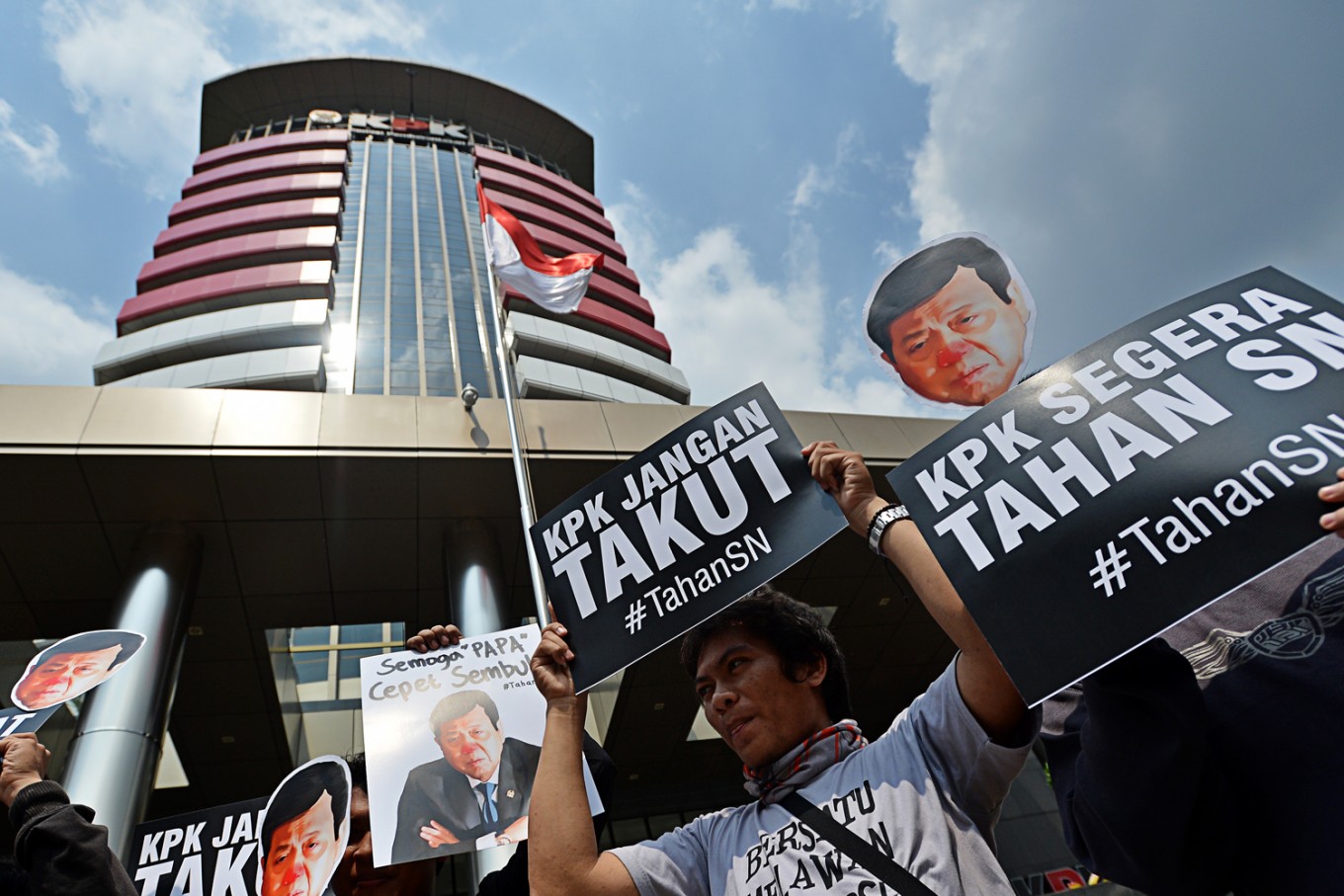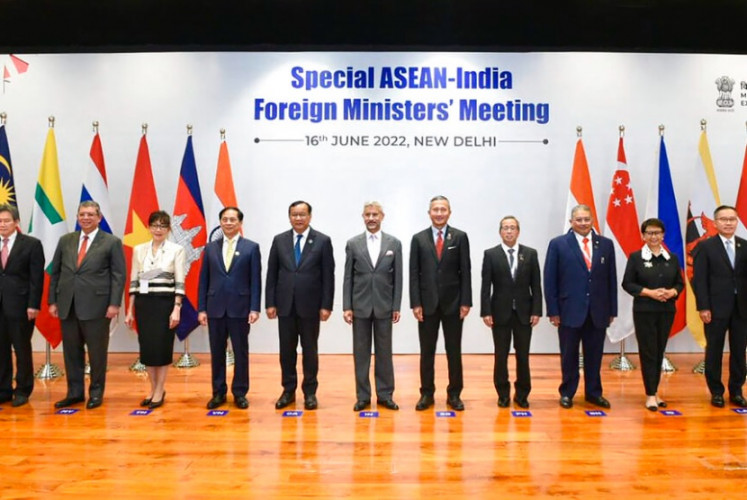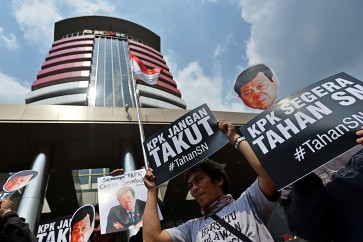Legal barriers to the war on corruption
Without the amendments, our strenuous fight against corruption is headed nowhere.
Change Size
 Against corruption: Anticorruption Civil Society Coalition members call for the arrest of House of Representatives Speaker Setya Novanto during a rally in front of the Corruption Eradication Commission headquarters in Jakarta on Sept.14.
(Antara/Wahyu Putro A.)
Against corruption: Anticorruption Civil Society Coalition members call for the arrest of House of Representatives Speaker Setya Novanto during a rally in front of the Corruption Eradication Commission headquarters in Jakarta on Sept.14.
(Antara/Wahyu Putro A.)
P
eople’s yearning for the demise of corruption remains insatiable, as it continues to obstruct our economic growth and breed injustice. Indonesia Corruption Watch recorded that at least 980 people were prosecuted for graft from 2016 to June 2017, but pervasive corruption remains a critical issue in the country.
The Transparency International Corruption Perceptions Index 2016 ranked Indonesia among the most corrupt countries in the world and the progress of its corruption eradication efforts has been very slow, even in the last five years. On one hand, a relentless fight against graft seems to remain on top of the national agenda, but on the other hand, whether we have sufficient legal instruments in place remains a questionable matter.
Articles 2 and 3 of Corruption Law No. 31/1999 as amended by Law No. 20/2001 have become the favorite weapons of investigators and prosecutors. Article 2 criminalizes “anyone who unlawfully enriches oneself or another person or a corporation that may cause damage to the state treasury or state economy” and Article 3 criminalizes “anyone who, with the intention to benefit oneself or other persons or a corporation, abuses the authority, opportunity or facilities mandated to him by his post or position, that may cause damage to the state treasury or state economy.”
However, in 2016, Constitutional Court Decision No. 25/ PUU-XIV/2016 declared the word “may” in Article 2 of the Corruption Law as unconstitutional and not legally binding. This caused a shift from categorizing corruption as a formeel delict to materiil delict, so there must be an actual and fixed amount of losses to the state treasury to prove the commission of offense. For example, the Grand Indonesia corruption investigation was recently halted because of an absence of material state losses.
The Constitutional Court’s decision has shed light on the fact that our Corruption Law is laden with problems. It is true that articles 2 and 3 may lead state officials to prosecution just because of negligence or exercising legitimate discretion.
However, the issue lies not in the word “may,” but in the word “unlawful” in Article 2, for an unlawful act includes both negligent and intentional acts. Even worse, Article 3, which regulates an intentional act, imposes a lighter criminal charge than Article 2.
It must be firmly established that corruption can only be done with intent. The United Nations Convention against Corruption (UNCAC) correctly states “knowledge, intent or purpose” is “required as an element of an offense,” which “may be inferred from objective factual circumstances.”
















